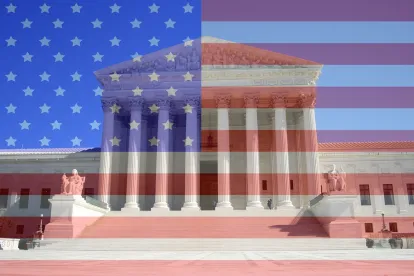The International Organizations Immunities Act of 1945 (“IOIA”) grants international organizations such as the World Bank and the World Health Organization the “same immunity from suit and every form or judicial process as is enjoyed by foreign governments.” However, at the time the IOIA was enacted, foreign governments enjoyed virtually absolute immunity from suit, while that immunity is more limited today. So, what is the meaning of “is” in the IOIA? Does IOIA grant international organizations the virtually absolute immunity that foreign governments enjoyed when the IOIA was enacted, or the more restricted immunity they enjoy today?
On February 27, 2019 the Supreme Court answered this question in a 7-1 opinion in Jam et al. v. International Finance Corp., No. 17-1011. In Jam, local farmers and fisherman and a small village in India sued the International Finance Corporation (“IFC”) in the DC federal court for negligence, nuisance, trespass and breach of contract, seeking damages and injunctive relief. The IFC financed construction of a power plant in Gujarat, India. Petitioners claim that the power plant polluted the air, land, and water in the surrounding area.
The Supreme Court decided that the ordinary meaning of the words used in the IOIA – the “the same as” formulation – is best understood to continuously link the immunity of international organizations to that of foreign governments, so as to ensure ongoing parity between the two. Today, that means that the Foreign Sovereign Immunities Act of 1976 (“FSIA”), including applicable case law, governs the immunity of foreign governments and thus of international organizations and therefore, the IFC is not absolutely immune from suit. Pursuant to the FSIA, foreign governments are presumptively immune from suit, but may be subject to suit under one of several statutory exceptions, including, suit “based upon a commercial activity” that has a sufficient nexus with the United States.
The IFC argued that allowing suits against international organizations, and especially international development banks whose core activities would fall under the FSIA’s commercial activity exception, would bring a flood of foreign-plaintiff litigation in U.S. courts, but the Supreme Court was not swayed. The Court noted that there was no danger of excessive liability because not all lending activities would necessarily qualify as commercial activity within the meaning of the FSIA or meet the other requirements of the commercial activity exception. Indeed, the High Court left it for the lower court to determine whether the allegations against the IFC, especially the alleged tortious conduct in India, are “based upon” commercial activity within the meaning of the FSIA’s commercial activity exception.
Further, the Court stated that if the work of a given international organization would be impaired by restrictive immunity, that organizations’ charter can always specify a different level of immunity, as is the case, for example, with respect to the International Monetary Fund. However, the IFC’s own charter does not state that the IFC is absolutely immune from suit. Until now, the World Bank and many other groups have rested their immunity on the IOIA rather than their founding charters. International organizations will have to carefully navigate the available immunity framework in the United States.



 />i
/>i
